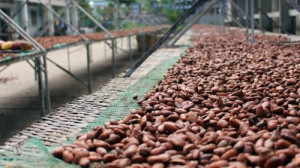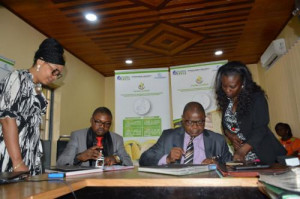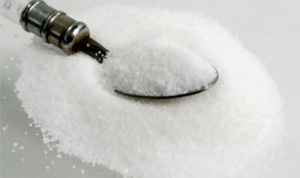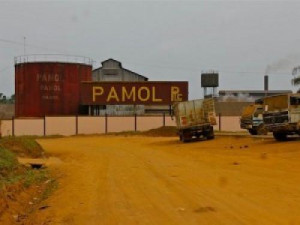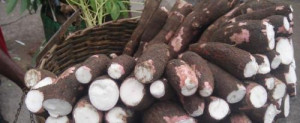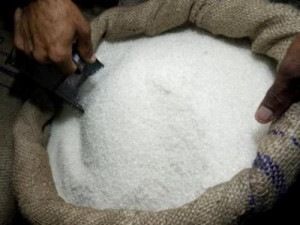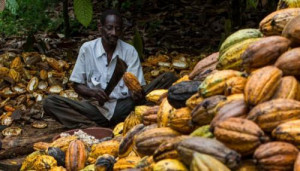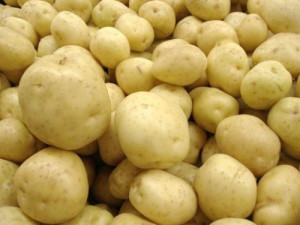
Cameroon: Paul Biya appoints a new director general for Semry
On July 20, 2018, Paul Biya (photo), Cameroon’s president signed a decree appointing Fissou Kouma as the director general of Société d'expansion et de modernisation de la riziculture de Yagoua (Semry) in charge of the development of rice culture in the country.
The newly appointed director has been a council member, since 2002, in Yagoua, chief-town of Mayo-Danay, located 10 kilometers from the Chadian town Bongor. He replaces Marc Samantana who is leaving behind a company facing numerous crisis. In 2017 for instance, the public company’s staff required the payment of not less than 5 months salary arrears and strikes were frequent.
In 2012, M. Samantana was summoned by the Budget and Finance Disciplinary Council which investigated his management between 2008 and 2009. He was then declared guilty of five management errors and required to refund CFA31.5 million to Semry.
Let’s remind that the Semry was created on February 24, 1971, to ensure rice self-sufficiency in Cameroon. In its glory days, this company used to employ 1,500 workers and provide jobs to 25,000 families of rice producers (more than 120,000 people living of rice production). Nowadays, despite numerous state funding, the annual production is barely 100,000 tons out of a local demand estimated at about 300,000 tons.
S.A
Cameroon: Telcar Cocoa’s trade drops 80% in the Southwest due to secessionists
Telcar Cocoa, local dealer for the American firm Cargil, will not forget the 2017-2018 cocoa season soon. Indeed, according to a report, published by a Cameroonian NGO Human is Right and quoted by Sunday Times, some of the plants and trucks of this major actor of the cocoa sector (it accounts for more than 30% of Cameroon’s export of beans) were destroyed by Anglophone secessionists who instituted a reign of terror in the two Anglophone regions (Southwest and Northwest) for more than a year now.
The managers of Telcar cocoa (which mainly operates in the Southwest presented as one of the two most important production basins according to the Cocoa-coffee council) explained to Human is Right that its cocoa trade in the Southwest dropped by 80% due to the paralysis of its activities.
“Telcar had to negotiate with the secessionists to protect some of its plants in the remote villages”, the NGO explained adding that apart from Telcar Cocoa, the public company Pamol active in the palm oil sector in the Southwest had to abandon some of its plants due to the insecurity which increased the unemployment rate by 70% in the agriculture sector in that region.
It is also worth noting that according to the national coffee-cocoa council ONCC, cocoa production should decrease during the 2017-2018 campaign. Indeed, fleeing the violence, many producers left their farms while some others who are near the Nigerian border chose to sell their products to buyers from this neighboring country.
Brice R. Mbodiam
Climate change is the biggest threat to the coffee sector, says François Mefinja Foka, MG of Uccao
Climate change which has been affecting coffee production in Cameroon is the real threat to the development of that sector. This was revealed by François Mefinja Foka, director of Union centrale des coopératives agricoles de l’Ouest (Uccao), the largest coffee producers’ organization in Cameroon.
“This situation coupled with the preexisting economic situation increasingly affect the coffee producers nowadays”, he declared. He then concluded that climate uncertainty has more impacts on coffee producers than economic uncertainties “Arabica could disappear even though it is the popular variety”, he added.
As for the goals set by Cameroon in the Cocoa-coffee recovery plan being implemented by Cameroon, François Mefinja Foka is pessimistic.
“According to the cocoa-coffee recovery plan adopted in 2014, the government targets 600,000 tons of cocoa and 160,000 tons of coffee. To date, the figures are not that convincing in the coffee sector as well as the cocoa sector. We are just at 300,000 tons of cocoa and barely 30,000 tons for coffee. Those figures show clearly that the coffee sector is not performing well and, if nothing is done, coffee will disappear to be replaced by other crops”, he warned.
BRM
Cameroon : Three new financial partners join the PIDMA
On July 13, 2018, in Douala, Thomas Ngué Bissa, the national coordinator of the Agriculture Investment and Market Development (Project le Coordonnateur national du Projet d’investissement et de développement des marchés agricoles-PIDMA) for which World Bank disbursed CFA50 billion, signed three new partnership agreements with microfinance institutions.
Thanks to these agreements, Caisse d’épargne et de crédit de la solidarité (Cepac), Financière d’épargne et de crédit (Figec SA) and Mutengene Savings and Loans Cooperative Society (MSLCS LTD), become financial partners in the framework of the project aimed at boosting the production of cassava, sorghum, and corn in Cameroon for the local agribusinesses supply.
"In the short term, these framework agreements will help complete the financing of four cooperatives’ producing sub-projects namely, two in the corn sector and two in the cassava sector. We believe that by signing these agreements with the microfinance institutions, the number of sub-projects effectively financed and implemented by the PIDMA will increase”, Thomas Ngué Bissa said.
According to an internal source at the coordination of PIDMA, with these agreements, the number of business plans financed in the short term should reach 23 with the financial support of five banks (Bicec, Société générale, Afriland First Bank, Ecobank, Banque camerounaise des PME), and four microfinance institutions (Renaprov Finances, Cepac, Figec SA and Mutengene Savings and Loans Cooperative).
Let’s remind that according to the cost and risk scheme which entered into application in May 2018, cooperative’s business plan is financed by PIDMA when at least 10% of this fund comes from the cooperative, 20% from the financial partner and less than 70% from PIDMA.
The loan consented by the financial partner is the remaining fund to be provided after the cooperative funds are deduced from the amount required to implement the bankable business plans prepared by those cooperatives (which should be already established companies) with the help of PIDMA experts.
Brice R. Mbodiam
Cameroon: Somdiaa to upgrade subsidiaries’ marketing practices
Somdiaa group, the parent company of Société Sucrière du Cameroon (Sosucam) plans to optimize the commercial practices of all its subsidiaries.
The group said, in an increasingly competitive business environment where markets and customers habits are constantly changing, there has been a need to improve and hone its customer-oriented approach based on an analysis, decision support and planning tool called “Sugar CRM”.
Thanks to a full-fledged project team, 9 subsidiaries, including Sosucam, are now equipped with the instrument. In addition, small-scale workshops placed in real-life situations are organized within the subsidiaries to identify and train teams on the use and the different functionalities of the multi-media tool (tablets and mobile).
“By the end of 2018/early 2019, all Somdiaa Group’s subsidiaries will have joined the Sugar CRM community”, the company said. Let’s note that Somdiaa operates 12 branches in Cameroon, Central African Republic, Congo, Gabon, Congo, and Côte d'Ivoire.
S.A
Palm oil sector: The South-West region's crisis affects CDC and Pamol’s production
Since the socio-political crisis started, nearly two years ago, in Cameroon’s Anglophone regions, palm oil processing has been facing various disruptions mainly within agri-business firms such as CDC and Pamol. This was reported by the Oilseed Sector Regulatory Committee.
Speaking during a meeting held in Yaoundé July 3, the committee’s chairman Emmanuel Nkoulou Ada commented that the Anglophone crisis has a direct mechanical effect on the sector, especially as CDC and Pamol are the county’s key processors. “The volume generated from these firms is far below their capacity and also, they are unable to trade their products. This situation does not ease distribution,” Nkoulou said.
Moreover, the official indicated that the companies have a foothold in other regions as they are inclusive organizations helping populations through the construction of schools and hospitals, as well as other social facilities.
Better still, both companies committed funds to boost yield. This covers 10,000 ha of palm trees for Pamol, and more than 12,000 ha for CDC.
Nkoulou, however, reassured that “we should not be worried about any shortage, since it is just a part of production that is disrupted”. He hailed government's move in 2017, which authorized the import of 97,000 tons of oil palm to prevent shortages so far.
S.A
Cameroon: 18 Business plans currently under review in the framework of PIDMA
The Cameroonian minister of agriculture informs that in the framework of the PIDMA (launched in 2015), eighteen business plans (for a total of CFA653.7 million) are being reviewed by local banks.
The minister did not reveal the banks sollicited but in May 2018, five financial institutions signed agreements with PIDMA. They are namely BICEC, Société Générale Cameroon (SGC), Afriland First Bank, Banque camerounaise des PME and RENAPROV.
In the framework of that project, 132 cooperatives are already financed by four partners namely BICEC, SGC, Afriland, and RENAPROV. The total investment for these cooperatives is CFA1.2 billion.
Let’s remind that the PIDMA is a joint initiative by Cameroon and World Bank for the implementation of the Agriculture 2.0. Its aim is to contribute to the development of subsistence farming (characterized by low productivity) into commercial farming with competitive value chains in the five agro-ecologic regions in the country namely, the Centre, West, Northwest, North and the Far-North.
S.A
Cameroon : SABC contributed to 62% of Sosucam’s turnover in the past ten years
In the last ten years, Société Anonyme des Brasseries du Cameroon (SABC)’s sugar purchase from Société sucrière du Cameroun (Sosucam) increased by 58%, increasing the sugar seller’s turnover by 62%.
This was revealed by Louis Yinda, managing director of Sosucam, in a publication released in the framework of SABC’s 70 years of existence.
According to official figures, the local subsidiary of Castel group buys 30,000 tons of sugar produced by Sosucam each year. This volume represents 20% of the sugar produced annually by the group which supplies 55,000 tons to 60,000 tons of sugar on average to agroindustries in Cameroon every year.
Let’s remind that SABC is also an important partner of Maïserie du Cameroon (Maiscam), an agroindustry company located in the North which supplies 100% (10,000 tons) of the corn grits it produces to the leader of the brewery sector.
SABC reveals that it usually imports raw materials to complement the volumes bought locally since the national production is limited and should not only supply the agro-industries and the households’ ever-increasing demand.
Brice R. Mbodiam
"Destination chocolatiers engagés", a label aimed at improving Cameroonian cocoa quality launched in Paris
On June 26, 2018, Destination chocolatiers engagés, a label aimed at providing the expertise of French chocolate makers to Cameroonian producers for the production of excellent quality cocoa was launched in Paris. This launch was conducted by the president of the French Confederation of chocolate makers and confectioners (Confédération des chocolatiers et confiseurs de France), Frédéric Chambeau, and Appolinaire Ngwé, president of the Cameroonian Cocoa and coffee council (Conseil interprofessionnel du cacao et du café-CICC).
“This label is the materialization of the collaboration we initiated with Cameroon through the Coffee and Cocoa council for an improvement of the quality of the country’s cocoa”, Frédéric Chambeau explained. “The aim here is to produce better quality cocoa, which meets the requirements of the master chocolate makers, and produce it on a larger scale, well beyond the small cooperatives. In that regard, the CICC promised to set cocoa post-harvest processing centers”, said Omer Gatien Malédy, the executive secretary of CICC. The secretary also explained that apart from the three processing centers built for cooperatives in the Coastal and Central regions, two large centers are being built in the country.
It is worth noting that the first processing center was inaugurated in Nkog-Ekogo, in the Central region on November 7, 2017. This village located in Lékié, the largest production basin in Cameroon, is, by the way, the place where Cameroonian producers and French chocolate makers’ collaboration started fortuitously.
Indeed, according to Christophe Bertrand, French chocolate maker, in September 2016, a woman named Aristide Tchemtchoua contacted him via Facebook inquiring whether he was interested in buying cocoa from her. Touched by the cocoa producer’s approach, he agreed to receive samples and the woman was to pay for all the related fees. “Well, she agreed to it. She sent me 250 kg of the bean by borrowing €700 (about CFA460,000),which is about a year’s salary in her country”, said the chocolate maker impressed with his business partner’s determination.
Since then, Chistophe Bertrand came more than once to Cameroon followed by members of the Confédération des chocolatiers et confiseurs de France, who signed long-term partnership agreements with Cameroonian producers. Thanks to these partnerships, the producers are able to sell their excellent quality beans at up to CFA2,000 per kilogram against CFA1,000 offered in the local market.
Brice R. Mbodiam
Russia eyes agriculture products exports contracts with Cameroon
Russia eyes some direct export contracts in Cameroon. This is revealed by Anatoly G. Bashkin, the Russian ambassador after his audience with the Cameroonian minister of agriculture Henri Eyébé Ayissi, last week.
“We deduced that we need to establish direct contracts as far as agriculture products’ import-exports are concerned. Recently, Cameroon is buying Russian wheat in profusion. Therefore, we will probably sign direct contracts”, the Russian ambassador explained to the government daily at the end of the audience.
According to the ambassador, in the recent years, Cameroon has turned to the Russian expertise in potato production. He further explained that Cameroon could learn many things from Russia as far as this production is concerned.
BRM
Mags frontpage
- Most read 7 days
- shared 1 month
- read 1 month



